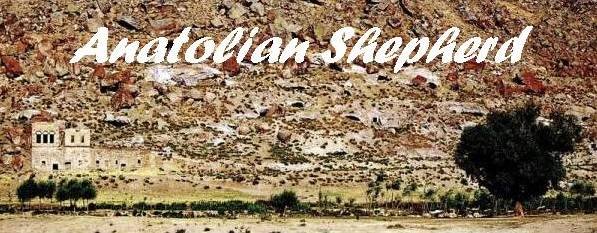
I am delighted to hear that France actually will not go through with the youth job law, which might or might not be beneficial for the people economically. I am happy that the French government had to listen. My interest in this issue is centered in two intermingled arguments, which overwhelmingly dominated the major media (BBC and NYT): the constant insistence of realpolitik and the discrimination between the peaceful (good) and aggressive (bad) protesters.
One Turkey 's (and probably other developing countries) major problems in dealing with both internal and external issues, is the lack of institutions that embodied Realpolitik as their modus operandi. Instead sentimental illusions drove most of the decisions made both in the local, national and international level. This creates huge problems, especially when Turks are dealing with Europe , a political world where most of the time political realities construct ideologies (rather than vice versa). Consequently, often, Turks think that Europeans trick them. And people protest against EU. Not clear why, but they are convinced that they were tricked and they have the right to protest. Again, people protest for and against headscarf. People protest for and against Kurdish Rights. People protest for and against Kemalist regime. Yet, not many political leaders narrate realistic political frameworks to mobilize this energy. Instead they preach Allah's name, Marx's name, Muhammed's name, Ataturk's name over and over again without any 'real' meaning. This again creates problems. Thus, I am not a huge fan of purely sentimental politics. Having said that I think the neoliberal realpolitik is ruining western democracy on many fronts.
To exemplify my argument, the French 'riots' or 'protests' sets a very compelling example. Probably, all of you followed what has happened in France for the last year. There has been obviously a significant unrest, both among the youngsters living in the marginalized 'banlieues' and also among the young bourgeois living in the center of Paris . The unrest of these two groups cannot be expected to come merely from class politics, ethnic conflict or religious sentiments. The groups on the streets of Paris for the last couple of weeks were many. They came from poor, uneducated, angry fringes of the society. They came from Sorbonne. They came from young workers employed in cafes, cinemas, restaurants. Ironically, the law comes to help the poorest of the poor, and to increase employment for the most economically marginalized. Still, they were protesting, probably just for showing their discontent with the world they are living in. From my perspective, it does not matter. When people protest, the governments should listen. The French government eventually did.
But then there was the media coverage of the events. BBC claimed: "most student demonstrators-and the workers who came out in support of them-quickly left as more youths descended on the square, with the sole aim of picking a fight with the riot police. These youngsters - aged between 15 and 25 - were wearing hooded tops that obscured their features. Many wore masks, so they could not be identified. Some had soaked scarves in lemon juice to wrap around their mouths before they came, to counteract the effects of the tear gas they knew would be unleashed by police. According to the riot police, many of these youths had come in from the suburbs outside Paris looking for trouble: this violence seen by some as a continuation in Paris city centre of what began in November's riots in the suburbs."
OK. This text means, at least from perspective, good behaved kids went back home without causing a real problem, but the bad boys, who are 'looking for trouble' on the other hand caused trouble. They even 'have soaked scarves in lemon juice to wrap around their mouth...to counteract the effects of the tear gas.' Spooky people they are. The question here is 'From who or what BBC possess the power to make value judgments about the 'kinds' of protesters'?"
American media, however, was worse. New York Times declared: France 's government has argued that the hotly contested new labor law will encourage companies to hire more young people, giving them a chance to prove themselves and land permanent jobs. But opponents say the new measure will just make it easier for employers to hire cheap, disposable labor and keep young people like Mr. Sylla turning in an unsteady netherworld of partial employment. That may sound like basic market economics to Americans, but while most of the world struggles to cope with the shifting threats and opportunities of an increasingly global economy, much of Europe, and France in particular, remains devoted to a quasi-socialist ideal."
OK. The subtext of article can be read as this. American 'basic market economics' is the perfect way of doing things. The 'quasi-socialist' Europe are trapped in their 'backward' ideologies.
My point here is that the efficiency of the markets and the stability of the 'system' becomes more important than people. If not suitable with the neoliberal ideology, i.e. if it is violent or if it interferes with the Global (American) idea of market system, any discourse is deemed irrational, even by the democratic left media. I do not have any problems with Realpolitik. But, once we, both individually and as a community, start to make our decisions based merely on 'the realities of the world' we will lose our emphaty and consequently our power as PEOPLE. I believe that French protesters achieved one simple, but extraordinarily important thing. They make their governments listen. In a time, when people's voice is lost in the grinding Wheel of neoliberal market ideology, this gives hope.
RESPONSE: Utsav Schurmans
Hey, these were interesting reading - thanks for writing about this. I'll be supplying my bent on all this and hopefully it makes some sense when I am done. Essentially I would argue that we need to be more vocal as anthropologist or scholars more broadly, much as did Janet and perhaps Omer too (not totally sure).
First a comment about protest and particularly student protest. Student protests are a difficult beast (and I say this as a former student leader helping to put out opinions and at times stage protests in
Belgium). Protests can easily go out of hand with very real damages, but sometimes as Janet indicates this is the only way to get attention. Further certain actions such as blocking the highway or train tracks are very different from overturning cars and starting fires in the city. I don't think anybody when I was involved actually incited such violence. At the same time these things did occur in the cat and mouse game with riot police that any protest eventually seems to bring with it. The sense of lawlessness (similar in kind to the lawlessness after Katrina) associated with 'battling' the police brings with it excesses that are difficult to control - certain people very quickly loose track of what it means to throw a rock through the window of a shop. The problem that this creates rests as much with the students as it does with the authorities and their un-interest in listening as well as the media that does or does not cover stories. There is a very real tendency in America to ignore protests or sometimes cover ones that are very marginal. During the run-up to the war in Iraq there were protests but these got VERY limited coverage. Also people in the US do not go out and protest as do people in some European countries. This rests as much the presence or lack thereof of labor unions as it does with a lack of student involvement and the general perceived notion that it would not make a difference anyway. This perception as far as I am concerned is very much constructed and maintained at all kinds of levels throughout the country, academia, etc.
As an outsider it was amazing to witness a shift from we are listened to as students to 'who cares about students' when I moved to the US. Sure, students are cared for to the extent that the university needs their presence (ideally ones with high scores on tests) and their money. A
simple example of this difference: more or less any university board that makes decisions in Belgium has both voting undergraduate and graduate student members. Actually, graduate students are not called students but are effectively considered junior researchers. If you explain this here people are surprised and even will voice the opinion that really undergrads and grad students do not deserve or should not have a seat at these tables. Well, that perception is generated by the
culture and indeed if you do not give people this responsibility they might come across as bumbling idiots when you ask them about the issues. On the other hand, if they are sense they are listened to, you will be surprised as to how intelligent and thought-out their opinions are and as to the often interesting angles they can bring to a debate.
Academia is not something that gets routinely listened to in the US, at least, much less so than in Europe. There are exceptions, true, but I think that in general this is a true statement. It is on us to try and be proactive about this and offer opinions when they might be relevant to a debate. Sure, it is yet another thing to do, but something that we at least owe the public. After all the money that keeps us in business often comes from them, not that it means we have to cater to their wishes. Anyway, in academia itself in the US there is a very real sense of hierarchy. If you are an undergrad you are meaningless to a large extent and discouraged to voice opinions. This is true of grad students too. The feeling I get is that you are not knowledgeable until you reach a certain 'stage', but this stage gets pushed further and further until half your life is over. Even among professors you get this sense. The junior faculty are considered exactly that - junior. And them raising issues or bringing things up is considered rebellious. They should be full faculty the argumentation goes (I got this from an actual faculty member here in the department, so it is not only the grad students that feel as if they should not be part of the community. Of course in the
end 10 people are allowed to voice opinions and all 390 others all the way to the undergrad anthro majors should be voiceless. That is an issue as far as I am concerned.
As a student I have been involved both in ASU where I did a masters and here at Penn in trying to get the student voice heard. It has been an interesting battle with surprising results. That is, at ASU I managed to get a grad student in the faculty meetings. Every single faculty member at the time that I talked to thought this had been wonderful. After I left the grad student was kicked off the meetings. Perhaps you might say it is not up to us to be there - well, let me tell you, it never is. I
certainly understand those of you thinking as you read this that students should not have a voice in department matters. Is that still true if you call them junior researchers? After all students are here as long as junior faculty who it turns out the last decade have been kicked out after 6 years. Most grad students as you all know do not even make it out in 6!
Now, mind you, I am not trying to say the Belgium system is great and the American sucks, far from it. After all, why then would I waste my time here? In fact Belgians might learn a bunch from the increasing success with which departments are able to add female faculty to their rosters. Sure, not perfect by any means, but quite extraordinary if you consider that in my old department in Leuven there was one female faculty out of 20 and that ratio was the norm throughout the university.
RESPONSE: Janet Chrzan
Your comments about protests remind me of a book I read by Diane Johnson (she of Le Mariage, Le Divorce, and L'Affaire) about living in the uber-bourgeois 6th Arrondissment of Paris - that her similarly uber-bourgeois French neighbors just couldn't understand why Americans weren't rioting in the streets after the theft of the 2000 election. I've often wondered that myself..... But my political work has convinced me that most Americans are either too scared to protest or too fat-n-happy-n-self-satisfied to even consider it. And besides, as one of those 2000 protesters, I remember being herded to a muddy field with the thousands of other protestors that you also didn't see on TV. Of course, you also didn't see on TV that we angrily left the fenced enclosure the bush admin had 'allowed' for our use and so disrupted the parade that bushie had to get back in his car - he was being pelted by things. I personally got into several tussles with cowboy-hatted Texans that day who made the mistake of kicking me - and I won. There were a lot of muddy white hats and a few rather, um, bedraggled fur coats that you also didn't see on TV....!
I quit protesting that day because I was so angry that to do so in the future would have meant that I would violate certain rules about conduct I'd like to live by - I was too furious to grapple with the bushies and their friends without getting, ahem, incensed. What I mean to say is that I knew the next time I went out it might be with steel-toed Doc Martins and bricks, I was that mad; so I decided that protesting in other ways might be better for my peace of mind and arrest record. I think that is an undercurrent in many of the conversations I have with angry voters. I also think that, as Omer has outlined, the discourse of protesting emphasizes the unwashed and radical. I personally think that if we want Americans to protest we must stage parades where people wearing suits are seen. Sorry to be so bourgeois here, but most main-stream Americans are not interested in marching down the street with people who have dreadlocks and smell of patchouli, even if they agree with them politically. I once protested in a suit, heels and pearls with several friends similarly dressed - and it was quite a revelation. People joined our little group from the street....!
But to return to Omer's excellent comments on 'realpolitic' (which is just a fancy way to say "My way or the highway, you stupid proles") it is time for us to study the landscapes of risk - that's really what this French protest is about. Risk; most people really don't want too much risk - they want to think that they have some security. They simply want to know that if they play by the rules they are not going to get effed. And most people do play by the rules, and here in America they get effed anyway. And Americans are indeed waking up to that! But what is needed is some really solid work on economic risk and strategies and outcomes, precisely the kind of work anthropologists do - strongly emic - since those stories are the only way to sway the politics of sentimentality that determines opinions and elections in the US (when Diebold isn't jacking elections).
I suspect that the politics of the next ten years are going to be determined by perceptions of the variables of risk, and that is precisely the area where anthropologists can help create change, because we have the tools to do the work and then explain it to the people.
Hope that makes sense! It's just that people in my ward are so scared.... and I feel it in every conversation. They are not afraid of the stereotypical jackboots in the night - they are afraid about how they are going to send their kids to college, pay for that emergency room bill, and afford to eat in their old age. And these people are not working class, they are professionals, most of them - engineers, doctors, etc. One thing I think is that the bushies are so over the top in their attempts to rewrite America for their benefit because it is about to collapse for them. I suspect that we are about to re-enter a cycle of progressive politics (there are 30-year cycles for these cultural trends) and they are trying to stay in control. They are vicious, cornered rats. And we must be aware of that, because they are very dangerous. But we must also provide the forces of change with the words and the myths and the symbols needed to sway American sentiment away from a neo-liberal framework - and I think we can do that, with anthropology. But we have to agree that it's OK to do so and still be an academic - which means we have to stand up for ourselves... and resist the academic McCarthyist witch-hunts they are trying to start right now. The bushies are more afraid of education than anything else, I suspect.











